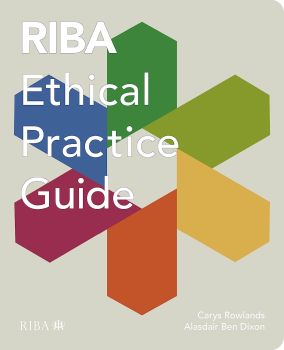
Ethical practice distinguishes an RIBA chartered architect from other design professionals. The RIBA Code of Professional Conduct requires practitioners to uphold high standards, while encouraging and empowering them to reflect critically and to continually strive to improve.
The Grenfell Tower tragedy was a significant reminder of the ethical responsibilities of the architect, and the importance of ethical decision-making. By making ethical practice one of its mandatory competences, the RIBA has made it a requirement that students and professionals develop a fundamental level of awareness and understanding of ethics.
This guide is designed to improve industry's grasp of ethical decision-making as it relates to the wider world, society, clients, the workplace, the profession, and the individual.
Each chapter introduces an ethical duty, setting out the relevant legal, regulatory and professional context before exploring the detailed subject matter and key principles. It includes an ethical dilemma for each duty and views and experiences from inside the profession.
Delving into issues of equity, diversity and inclusion, social value, well-being and integrity, it does not seek our 'right' or 'wrong' answers. Rather it encourages reflection on different interests, consequences and considerations, in order to reach a considered and balanced position.
While ethical practice is invaluable in itself, it is also vital for establishing trust with clients, improving transparency, enhancing reputation, attracting and retaining high-quality staff, avoiding disputes and for a high-level of accountability that benefits the entire industry, and society more broadly.